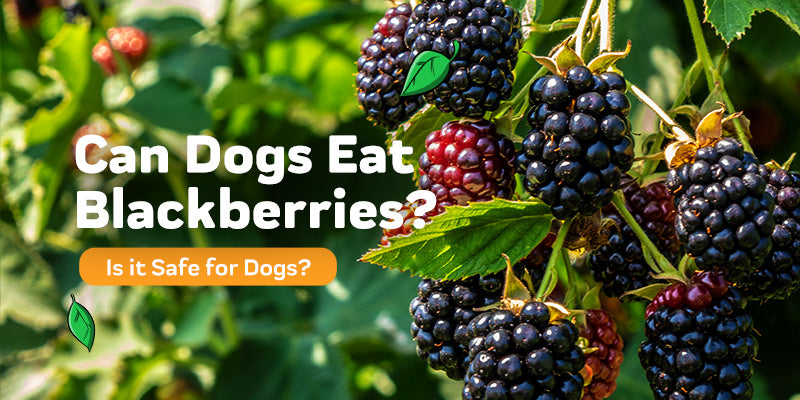- Can Dogs Eat Mango Safely?
- The Benefits of Mango for Dogs
- How Much Mango Can a Dog Have a Day?
- How to Feed Your Dog Mango
- Conclusion
Mango is a tropical fruit known for its sweet taste and soft orange flesh. It has been enjoyed by humans for centuries, and we especially love it in smoothies, drinks, and desserts. But are mangoes safe for dogs to eat?
Dogs have a different digestive system from humans, and so the things that we can eat aren't always safe for canine consumption. In fact, many fruits that humans enjoy are toxic to dogs! So how do we determine when feeding your dog a certain fruit is a good idea and when it is unsafe?
Well, every fruit is different, so before feeding anything to your dog for the first time, it's a good idea to check with a veterinarian to make sure that it's safe. A lot of the time, only certain parts of the fruit are safe for dogs to eat, or only in limited quantities.
So, can dogs eat mango? Read on for all the details
Can Dogs Eat Mango Safely?
The short answer is that yes, mangoes can be eaten safely by dogs in moderation. However, not every part of the mango is safe for canine consumption, so there are some conditions that dog owners need to be aware of when feeding this fruit to their pets.

The most important thing is to always wash and peel off the skin, as well as remove the pit and seeds before serving them to your dog. The skin, seeds, and pit are the parts that aren't suitable for ingestion by your pup.
While the skin doesn't contain any harmful chemicals, it is often difficult for canines to digest. It can also be irritating to the skin for both humans and dogs, and if not washed properly can cause a minor rash or discomfort. For these reasons, it is a best practice to remove the skin before serving.

Mango pits, as well as their seeds, contain cyanide, which is poisonous to both canines and humans. Cyanide is toxic to dogs in smaller quantities than humans, so your pet should never have access to this harmful substance.
In addition to its toxicity, a mango pit is also a choking hazard and can cause a painful intestinal blockage which could require surgery to fix and could be fatal if not properly treated. Therefore, if your dog has ingested a mango pit, seek immediate veterinary assistance.
Despite these serious caveats, when served properly, mangoes can make for a delicious and healthy treat for your canine friend! Let's take a look at the other side of the coin and consider the benefits that mangoes have concerning canine health and well-being.
The Benefits of Mango for Dogs
So we know that this fruit can be safely consumed by your canine pets, but is mango good for dogs? As a matter of fact, it’s perfectly healthy in most forms and when eaten in moderation, so there are a lot of health benefits to be gained by feeding your dog mango.

Mangoes are high in vitamins A, B6, C, and E, are full of antioxidants, and also contain significant amounts of beta-carotene and potassium. These all have unique benefits regarding improving your pet's health.
Vitamin A promotes healthy eyes, supports vision, provides relief from night blindness and dry eyes, and prevents cataracts. Animals that experience significant stress may be lacking in Vitamin C production, so mangoes can be used to supplement this deficiency. Another great option for treating and preventing vitamin deficiency is to use our Advanced Multivitamin Chews for dogs!
The antioxidants in mangoes can help prevent cancer and other degenerative diseases, as well as fight against allergies and skin problems, and provide immune support. Other health benefits associated with eating this orange delicacy are lowered cholesterol, decreased inflammation, and improved digestive health.
How Much Mango Can a Dog Have a Day?
So we know that under the right circumstances, your canine companion can eat this fruit with no safety concerns and that they will even derive certain health benefits from it. But in what quantities can dogs eat mango safely? How much is too much?
To find out the specific daily amount that is safe for your pet, you'll want to check with a veterinarian. It will depend on the size and breed of your canine. Generally, larger animals can have about one-fourth of a cup of mango per day, but this is only a rough guideline and may not be appropriate for your specific pet.
A good rule of thumb is to treat mango like a treat, meaning it should not be making up the bulk of your pet's daily nutrient intake. In general, treats should make up 10% of your dog's daily food consumption, while regular pet food should take care of the other 90%.
One reason not to overfeed your pet mango is that it is very high in fiber. Dogs are not used to getting a lot of fiber in their diet, so eating too much of it can cause digestive problems like diarrhea or an upset stomach. In addition to fiber, mangoes are also relatively higher in sugar content than regular dog food. For this reason, it is best to limit consumption of this and other sweet fruits to avoid tooth decay.
How to Feed Your Dog Mango
When feeding your dog mango, there are certainly several options to consider in terms of form. Serving the fruit fresh is a good choice – and a healthy one too!
Larger breeds can handle bigger pieces of fruit since the flesh is soft enough for them to chew easily. This could present a choking hazard for smaller breeds, however, so for a Chihuahua or a Pomeranian it would be best to cut the fruit into small chunks.
When dogs eat mango in the summertime, they may prefer frozen fruit instead of fresh as a cooling treat. It can also be served as a soft puree.
Eating it dried is another option for your pet, but be warned that it is not as healthy as its fresh or frozen counterparts. Dried fruit has a higher sugar concentration than otherwise, so be sure to use these in extreme moderation.
Because of the sugar content, check with your veterinarian before letting your pet eat mango if they have diabetes or other relevant dietary restrictions. Some animals may also be allergic to this or any new food, so the first time they eat it, it is best to only let them eat a little bit and then watch for a potential reaction.
Conclusion
When served properly and in moderation, eating mango can have some serious health benefits for your dog! Just be sure to follow the serving guidelines and check with your veterinarian if you are unsure.
For other ways to improve your pet’s health, check out our selection of pet-friendly vitamins and supplements!















